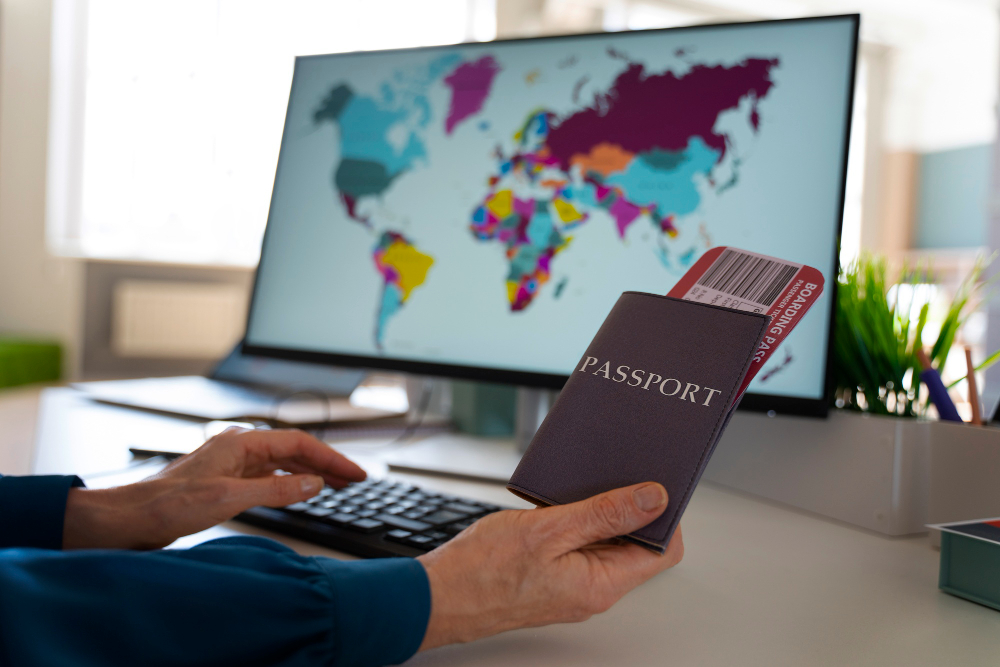Paperless Entry, QR-Based Visas to Begin August 1
By Xamblog.com
In a bold move toward modernization and global competitiveness, the Nigerian government has announced the full digitization of its visa application process, effective August 1, 2025. The sweeping reform is designed to simplify entry into the country for visitors, investors, and professionals, while also tackling long-standing inefficiencies in the immigration system.
According to the Ministry of Interior, the upgraded system will eliminate paperwork entirely, enable QR code-based visa issuance, and cut processing times to as little as 16–18 hours.
What’s Changing?
Nigeria’s visa overhaul brings several transformative changes:
-
100% Paperless Processing: No more physical forms or documents. All applications, submissions, and approvals are done online.
-
QR Code-Based Visas: Instead of physical visa stickers, applicants will receive a secure QR code that can be scanned at ports of entry.
-
Rapid Processing Time: Visas can be approved in under 18 hours, streamlining access for business travelers, tourists, and academics.
-
Global Accessibility: Applicants from anywhere in the world can now apply remotely without visiting embassies or consulates.
Strong Start: Over 14,000 Applications Processed Already
Despite the official rollout date still weeks away, over 14,000 applications have already been processed in the last six weeks through pilot testing, according to data released by the Nigeria Immigration Service (NIS).
This early success suggests strong demand and points to the growing confidence of international travelers in Nigeria’s new system.
Impact on Business, Travel, and National Image
The digital visa system is expected to significantly boost Nigeria’s global competitiveness. For years, visa bottlenecks, embassy delays, and outdated procedures have discouraged investors and tourists alike.
“This reform is long overdue. It sends a strong signal that Nigeria is serious about making itself accessible and business-friendly,” said Emeka Okonkwo, CEO of a travel consultancy firm in Lagos.
The move also aligns with Nigeria’s broader push for digital governance, which includes efforts in customs, tax administration, and ID verification.
From a security standpoint, digitized applications will help authorities track entries more accurately and flag suspicious profiles in real-time—especially important amid regional security concerns.
Regional Leadership and Global Best Practices
Nigeria now joins a growing list of countries like Kenya, Rwanda, and India that have adopted e-visa or digital entry systems to improve visitor experience. In fact, Kenya’s own visa digitization has been credited with doubling tourism inflows within a year of its launch.
With Africa poised for a tech-driven transformation, Nigeria’s e-visa platform may serve as a benchmark for other West African nations.
Challenges Ahead
While the innovation is laudable, some analysts caution that internet access, user literacy, and cyber-fraud risks could pose challenges, especially for applicants in remote or under-resourced regions.
There is also the need for robust customer service channels, especially as the new system scales. The government says it is working with private technology partners to ensure the infrastructure is stable and secure.
Conclusion
Nigeria’s immigration reform is not just a tech upgrade, it is a strategic pivot toward openness and efficiency. As global mobility rebounds post-COVID, and Nigeria competes for foreign investment and skilled talent, a modern, digital visa process could be one of its most impactful tools.
For more updates on travel, governance, and national reforms, visit Xamblog.com
Last Updated on July 21, 2025 by kingstar





